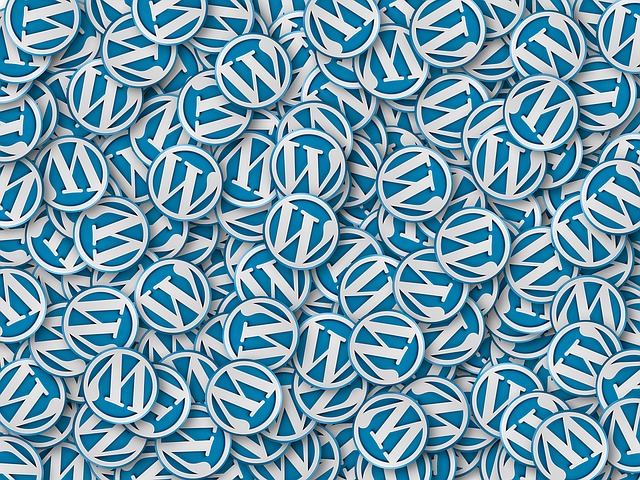
Millions of websites use WordPress as their content management system (CMS) of choice. As of 2017, researchers believe WordPress powers nearly 29% of all of the sites on the entire Internet, including nearly 15% of the top 100 websites in the world. With so much popularity for one CMS, you may ask yourself: “Why is WordPress so popular? What makes it so great?”
Yeah, Why IS WordPress so Popular?
Unfortunately, the answer is not as simple as a single, defining characteristic. In fact, WordPress gained popularity because of the many, many things that it (and the WordPress community) do very well. Formed in 2003, WordPress has come a long way. It has introduced an incredible array of powerful new features with each major update. It has become one of the most powerful, versatile, robust, and user-friendly CMSs on the planet. While all of the great features contributing to WordPress’s popularity would take a bit more space than we can dedicate to this article, the following list details five of the more important reasons for this popularity.
1. Free and Open Source
Possibly one of the biggest contributing factors to its success, WordPress is, has been, and will remain for the foreseeable future both free and open source. That makes it easy to find, use, edit, and redistribute. Thus, virtually every web hosting company (including InMotion Hosting) offers their users a way to easily install it. Even if the host does not offer this, you can easily do it yourself. Simply download a copy of the program from the official WordPress website and manually install in the appropriate directory. Need to change something to suit your particular situation? You can do so easily thanks to its open source code. Hit a unique snag that you need help solving? The incredible WordPress community (and the open source community in general) can probably provide an answer in one of the thousands of forums online.
2. Plugins
A key component of WordPress’s success (and the thing that helped to elevate it from a humble blogging platform to a full-fledged CMS) plugins have continually redefined its capabilities. Most WordPress plugins operate autonomously, meaning users can mix and match them to suit their specific needs. It also keeps maintenance costs low, as both WordPress and its individual plugins can update independently without affecting dependent components.
The sheer volume and diversity of plugins can be overwhelming. WordPress plugins offer functionality for marketing automation, photo slideshows, social media plugins, forms, search optimization (SEO), caching, security, eCommerce, and so much more. And, developers around the world add new plugins (and modify existing ones) every day.
3. Themes
One of the biggest advantages of any CMS, themes allow users to have the framework for a good-looking, well-built website with the simple click of a button. Just like plugins, themes run the gamut from lightweight, minimal frameworks (such as those issued annually by WordPress itself) to full-featured powerhouses with pre-populated content and images (like those offered by BoldGrid). Using a theme, even a novice web designer could make a professional looking website in just a few minutes.
4. Ease of Use
Not often can one describe a single product built for web design as both powerful and easy to use (and really mean it). But, both of those descriptors apply to WordPress. With a logically organized menu of features and simple mouse-click selections, WordPress took web design out of the hands of experienced coders and made it accessible to the masses. In fact, anyone, even without basic HTML or CSS knowledge, can build and maintain a site in minutes using WordPress. This revolutionized how people built websites, reduced dependency on web professionals, and empowered millions to explore web design.
5. Versatility
WordPress started life as a blogging platform. But, with the clever use of plugins and an ever-increasing list of built-in features, it quickly grew beyond its humble beginnings. Today, people use WordPress for literally every kind of website imaginable. Whether you need an eCommerce site, a photography portfolio, or (yes) even a simple blog, WordPress can handle it.
Better yet, according to Google, WordPress has a rating of 99% SEO friendly. It owes this score to its well-designed structure that easily accommodates crawls by search engines. WordPress loads relatively quickly, follows solid coding and UX standards, makes optimizing images easy, and includes tools to simplify integration of social media and generating XML sitemaps. It also has a wealth of SEO plugins to help site owners craft pages and content that ranks even higher. And, these features work with every kind of site you might build.
Get the Most out of Your WordPress Experience with InMotion Hosting’s WordPress Hosting Service
With all the power, versatility, and ease of use WordPress has to offer, why not use it for your next project? Of course, if you plan to run a WordPress site, you should have it hosted in an environment specifically built for WordPress. You want a host that has hardware, software, and caching tools optimized exclusively for WordPress. You want a solution like InMotion Hosting’s WordPress Hosting product. To learn more, speak with one of our knowledgeable and friendly sales people today.